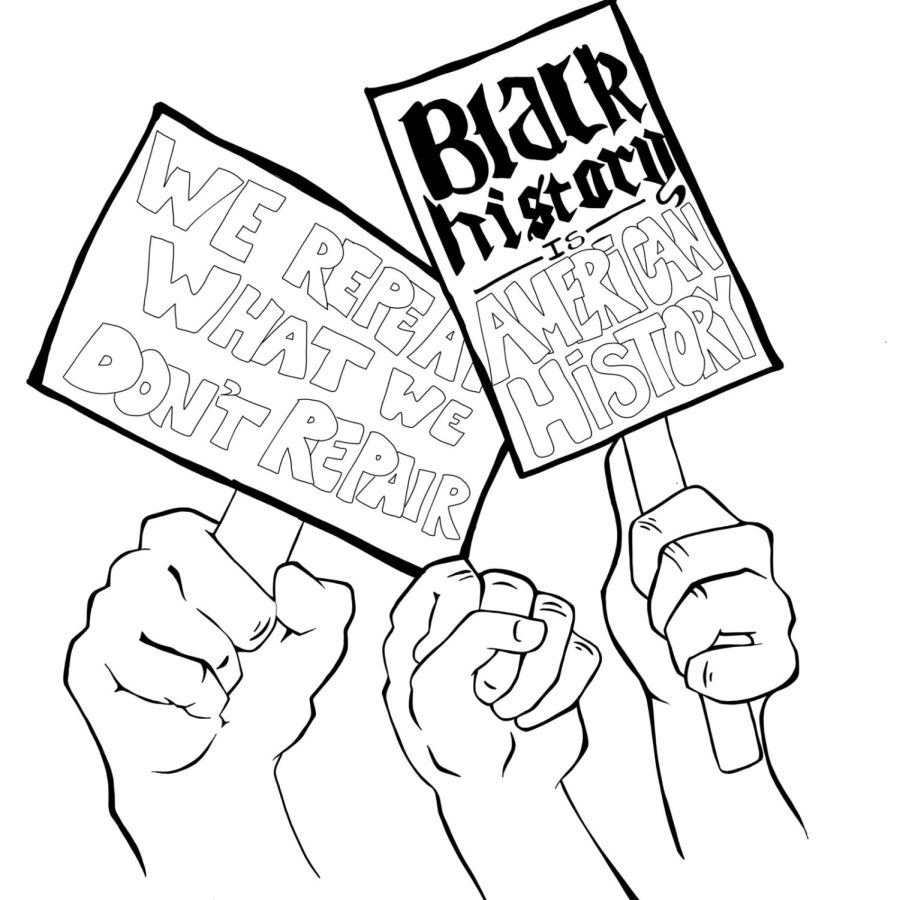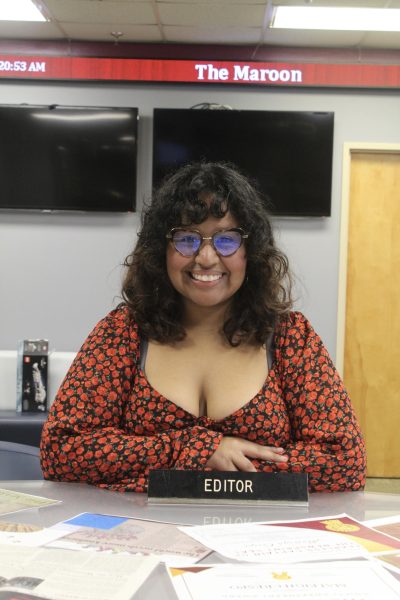EDITORIAL: Black history is American history
February 14, 2022
Bomb threats are haunting historically Black colleges and universities across the country. Books reflecting an ugly truth are being banned to make people comfortable. Critical race theory, the way we view people of color in a White-dominated society, is being removed from curricula. And at our university, Loyola’s African-American studies department is missing a permanent chair.
Black History Month recognizes and celebrates not only the contributions of Black people in society but also their history. A history that is consistently White washed. Black people built this country, and that fact is too often buried to reflect a more “patriotic” narrative, a White narrative.
People need to be educated about the true history of this country, yet school boards are banning books and changing curricula.
You can’t pick and choose history. Ignorance is not bliss, and though history doesn’t repeat, it rhymes. If we neglect to learn from our mistakes, we’ll be doomed to subscribe to the same ideas that poisoned our past and continue to permeate our present — a never-ending cycle of racism. We need to talk about our past and present in order to change our future.
When Carter G. Woodson founded “Negro History Week” in 1926, which would later become the month-long event we celebrate today, his intentions were clear.
“It is not so much a Negro History Week as it is a History Week. We should emphasize not Negro History, but the Negro in History. What we need is not a history of selected races or nations, but the history of the world void of national bias, race, hatred, and religious prejudice,” he said.
He knew then what many fail to realize today. We are failing as a country, and as a community, to understand that Black history is American history.
The black and white photos in our history books continue to lie to us, claiming that history happened millions of years ago. In reality, however, we are living history today.
Our grandparents lived it, our parents remember it, yet we are still seeing it today. We have been complicit in not only the systematic mistreatment of Black Americans but also the building of the systems themselves.
Ruby Bridges, the first child to integrate to an all-White school in New Orleans during the 1960 desegregation, is 67 years old. Let that sink in. Most of our grandparents are older than her. Some may have even yelled at 6-year-old Bridges as she was escorted by U.S. Marshals into school that historical morning.
Our generation needs to be on the right side of history, and progress starts on the steps of Marquette.
If we want to see changes in the rest of the world, it’s time that we start looking inwards. Loyola needs to ensure it’s dedicating adequate resources towards the African American studies department. It’s unreasonable that Loyola, a university in a hub of Black culture, doesn’t dedicate more resources to honoring the community it exists within.
Everything we love about America is because of Black people. It’s time to celebrate that, not avoid it.








